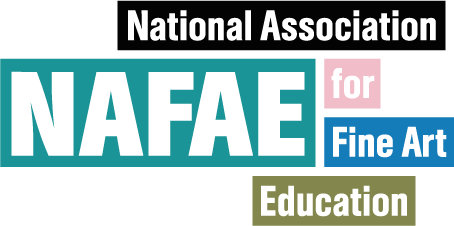Abstract
This proposal is for a presentation and critical reflection on a practical Teaching & Learning Project (2021-ongoing) at the University of Lincoln. It responds to the theme ‘Making Communities and Making with Communities’, specifically with regards to ‘art, places, and environment’ with an overarching aim to develop a professional studio practice and to improve use of the studio space outside formal scheduled teaching time: to create an improved studio culture.
The European model of the atelier dominated art education from the middle ages to the 19th Century. Ateliers were predicated on a hierarchical model where a master trained apprentices. In 2021, we revived and adapted this model for studio teaching. Martin Lang and Andrew Bracey each took up a week-long residency in the MA Fine Art studios, working alongside students. These updated and short term ateliers replaced formal scheduled teaching with the aim of teaching by demonstration. Rather than formal demonstrations, students observed informally and asked questions that were of relevance to their own practices, or just of personal curiosity. There was no obligation for them to engage with us, but our presence and work was unavoidable, as we were based near the entrance to the studios. Rather than creating a purely hierarchical relationship, feedback from students reported that they felt we were more approachable, had more time to discuss artmaking, and that they viewed us more as fellow artists than teachers during this period. The mood was friendly and convivial.
While the project looked back on traditional art pedagogy, it was also forward thinking. We used a Teaching and Learning grant to purchase specialist time-lapse cameras. We then recorded ourselves throughout the residency to produce time and motion studies that were later presented to the students for discussion around the theme of ‘studio culture’. The aim was to present best practice regarding planning, organisation and productivity. This also proved to be a levelling experience, as staff were placed in the students’ position regarding access to facilities, Health & Safety barriers, and challenges making last-minute, unplanned, art materials purchases in a small provincial city. These experiences, along with the recordings, were presented back to the students and formed the basis of a critical debate that helped the students to reflect on how the studio can be used. The second stage of the project involved repeating the experiment with the students as the subjects.
The project was well-received by students and management. It is now embedded into a new module, Studio Culture on a newly revalidated programme that will start in 2022-23. This module enables students to develop a professional practice through a focus on the studio as a fundamental aspect of art education, through: working alongside staff in the studio; testing and experimenting with what possibilities the studio can bring to their practice; mounting a public open studio; critical reflection on the whole process.
Bios
Andrew Bracey is an artist, curator and academic. He has extensive experience of teaching art over twenty years at universities including Wolverhampton University, Salford University, Manchester Metropolitan University and Liverpool John Moores University. He is a Senior Lecturer and Programme Leader of MA Fine Art at The University of Lincoln.
Martin Lang is Senior Lecturer in Fine Art and Joint Programme Leader for MA Fine Art at the University of Lincoln. He is an internationally exhibited artist (Cyprus, Portugal, and the USA) and his work has been selected for exhibition by Dexter Dalwood and Tate Curator of Photography Simon Baker. https://cargocollective.com/martinlang

